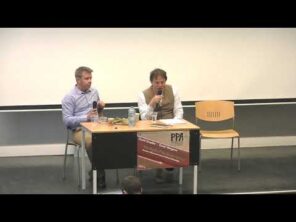For generations, our remote ancestors have been cast as primitive and childlike – either free and equal, or thuggish and warlike. Civilization, we are told, could be achieved only by sacrificing those original freedoms or, alternatively, by taming our baser instincts. David Graeber and David Wengrow show how such theories first emerged in the eighteenth century as a reaction to indigenous critiques of European society, and why they are wrong. In doing so, they overturn our view of human history, including the origins of farming, property, cities, democracy, slavery and civilization itself.
The Dawn of Everything: A New History of Humanity
For generations, our remote ancestors have been cast as primitive and childlike – either free and equal, or thuggish and warlike. Civilization, we are told, could be achieved only by sacrificing those original freedoms or, alternatively, by taming our baser instincts. David Graeber and David Wengrow show how such theories first emerged in the eighteenth century as a reaction to indigenous critiques of European society, and why they are wrong. In doing so, they overturn our view of human history, including the origins of farming, property, cities, democracy, slavery and civilization itself.
Drawing on path-breaking research in archaeology and anthropology, the authors show how history becomes a far more interesting place once we begin to see what’s really there. If humans did not spend 95 per cent of their evolutionary past in tiny bands of hunter-gatherers, what were they doing all that time? If agriculture, and cities, did not mean a plunge into hierarchy and domination, then what kinds of social and economic organization did they lead to? The answers are often unexpected, and suggest that the course of history may be less set in stone, and more full of playful possibilities than we tend to assume.
The Dawn of Everything fundamentally transforms our understanding of the human past and offers a path toward imagining new forms of freedom, new ways of organizing society. This is a monumental book of formidable intellectual range, animated by curiosity, moral vision and faith in the power of direct action.
‘Fascinating, thought-provoking, groundbreaking. A book that will generate debate for years to come’ Rutger Bregman
‘Graeber and Wengrow have effectively overturned everything I ever thought about the history of the world. The most profound and exciting book I’ve read in thirty years’ Robin D. G. Kelley
Chinese (Simplified)

Yuxin Zhang
,Fan Zhang
Pages: 560Chinese (Traditional)

Wenpei Lin
Pages: 744Croatian

Katarina Ott
,Ivan Ott
Pages: 608Czech

Victoria Hanišová
Pages: 648Danish
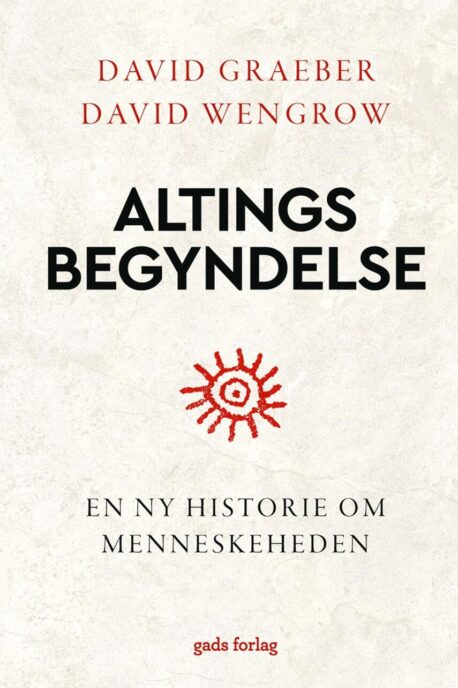
Uffe Gardel
Pages: 731Dutch

Bart Gravendaal
,Rogier van Kappel
Pages: 656English
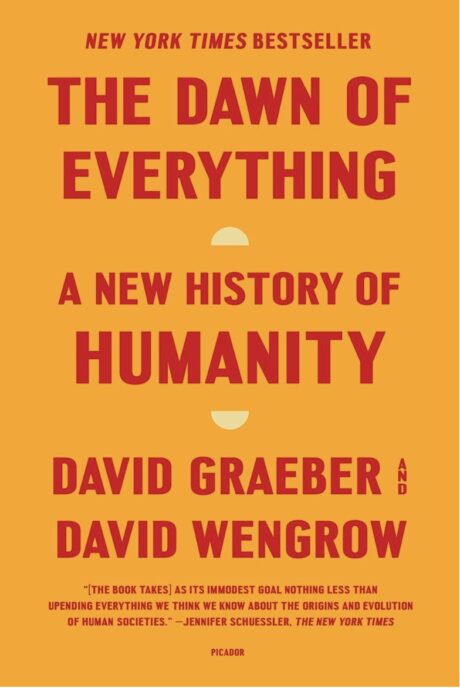
Estonian
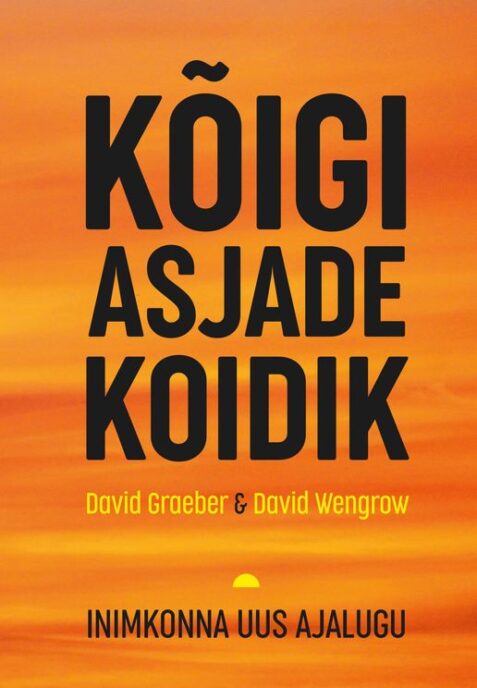
Andreas Ardus
Pages: 784Finnish
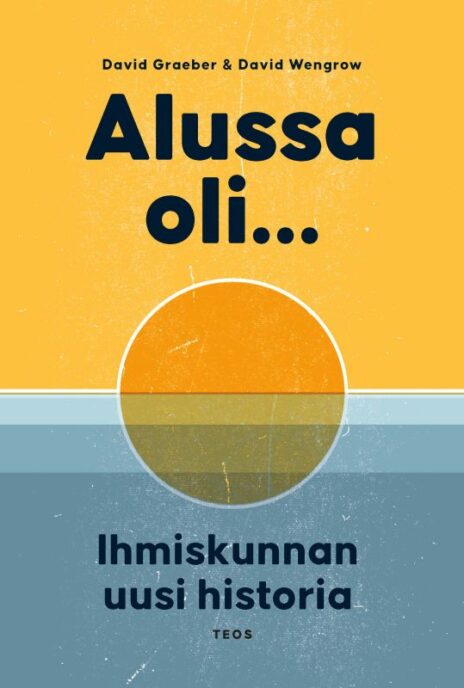
Anna Tuomikoski
Pages: 677French

Élise Roy
Pages: 752Greek

Christodoulos Litharis
Pages: 784Italian
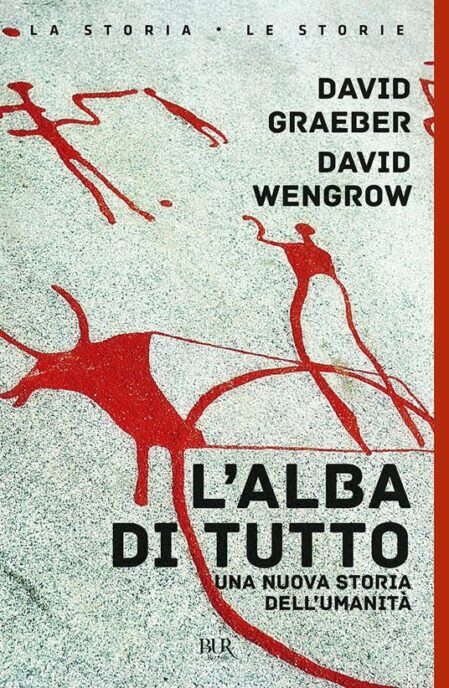
Roberta Zuppet
Pages: 736Japanese

Takashi Sakai
Pages: 708Norwegian
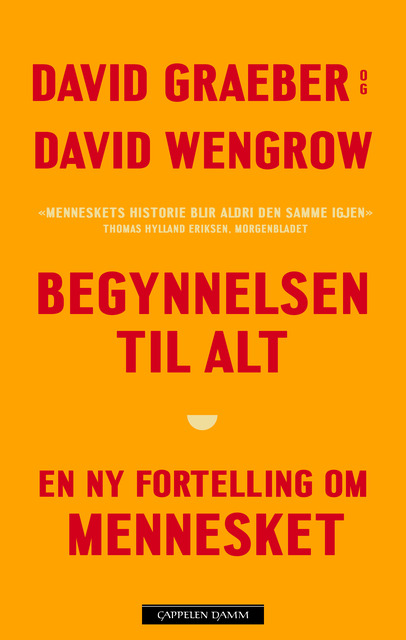
Hege Mehren
Pages: 736Polish

Robert Filipowski
Pages: 672Portuguese (Brazil)

Denise Bottmann
Pages: 696Portuguese (Portugal)

Sara M. Felício
,Claudio Marcondes
Pages: 728Romanian
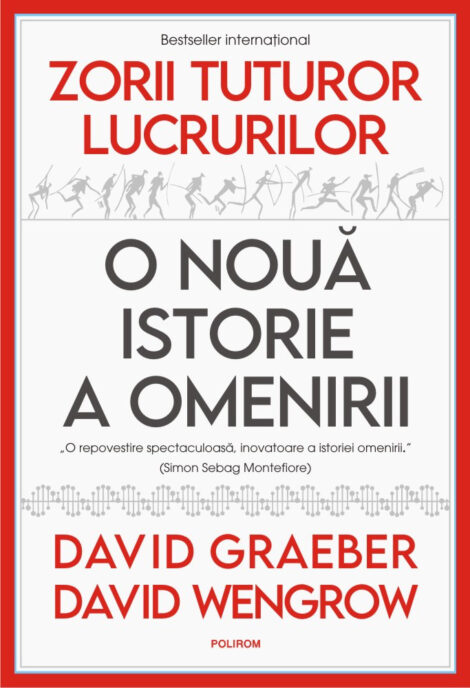
Miruna Munteanu
Pages: 544Russian

Konstantin Mitroshenkov
Pages: 1167Serbian

Marko Sinđić
Pages: 591Slovak

Pavol Sveda
Pages: 672Slovene

Samo Kuščer
Pages: 769Spanish
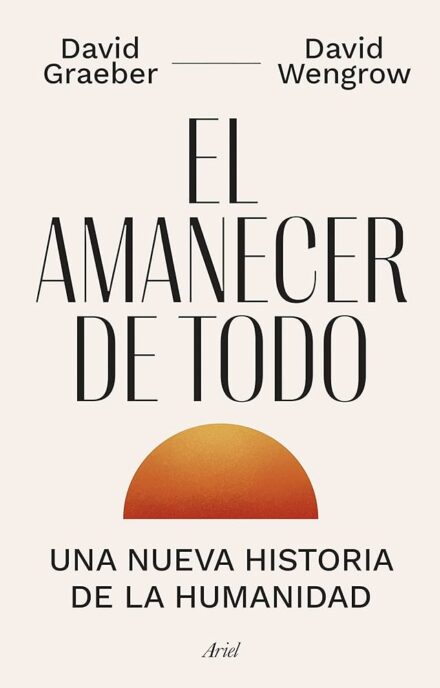
Joan Andreano Weyland
Pages: 848Swedish
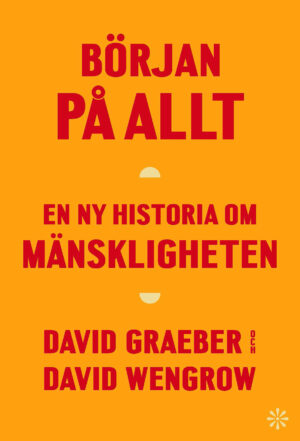
Human History Gets a Rewrite
A brilliant new account upends bedrock assumptions about 30,000 years of change.
By William Deresiewicz
THE DAWN OF EVERYTHING A NEW HISTORY OF HUMANITY
A fascinating, intellectually challenging big book about big ideas
Choosing Civilization
Seeking to change the present by reinterpreting the past, a new book puts its agenda before accuracy.
Robert Henderson
November 19, 2021 The Social Order
The Radical Promise of Human History
Boston Review
A sweeping new history of humanity upends the story of civilization, inviting us to imagine how our own societies could be radically different.
Emily Kern
Early Civilizations Had It All Figured Out
A contrarian account of our prehistory argues that cities once flourished without rulers and rules—and still could.
By Gideon Lewis-Kraus
November 1, 2021
David Graeber Knew Ordinary People Could Remake the World
A new book by David Wengrow and the late David Graeber is a brilliant rejection of the fatalistic myths of human history — and a defense of our power to shape our own world.
Review of The Dawn of Everything: A New History of Everything by David Graeber and David Wengrow (Allen Lane, 2021)
David Graeber and David Wengrow’s Anarchist History of Humanity
Beyond the State
David Graeber and David Wengrow’s anarchist history of humanity.
By Daniel Immerwahr SEPTEMBER 20, 2021
Were the Earliest Societies Anarchists?
David Graeber and David Wengrow’s new history of humanity looks for the origins of authoritarianism and freedom.
Digging for Utopia
In The Dawn of Everything David Graeber and David Wengrow search for historical examples of nonhierarchical societies to justify their anarchist vision of human freedom. But must we find our future in the past?
The Dawn of Everything: A New History of Humanity by David Graeber and David Wengrow review — how Sapiens got it wrong
Everyone from Yuval Noah Harari to Steven Pinker is savaged in this revolutionary look at where we came from
The Dawn of Everything: A New History of Humanity by David Graeber and David Wengrow review – have we got our ancestors wrong?
This imaginative attempt to reconfigure humanity’s roots contends that early people were free to shape their own lives
How fear makes us human
The late David Graeber’s history of early human societies presents civilisation as a descent from anarchy into servility. But was man ever free?
‘The Dawn of Everything’ rewrites 40,000 years of human history
A new book recasts social evolution as surprisingly varied
Social evolution, from Ice Age hunter-gatherer networks to ancient Egypt’s pyramid-building dynasties and beyond, gets reinterpreted in a new book as a series of flexible systems that didn’t inevitably produce rampant inequality.
OSAMA ELSAYED/UNSPLASH
The Dawn of Everything: A New History of Humanity
“This sweeping and novel synthesis exploring the arc of the human condition— its highly diverse forms of political organizing, and the future that lays in store for us—may well prove to be the most important book of the decade. For it explodes deeply held myths about the inevitability of our social lives dominated by the state.”
The Guardian, “The Dawn of Everything by David Graeber and David Wengrow review – inequality is not the price of civilisation”
An archaeologist and an anthropologist dismantle received wisdom about the way early societies operated
By David Priestland, October 23, 2021
Reflecting on the Dawn of Everything
The Tragedy of the Spiritual Commons: review of The Dawn of Everything by Davids Graeber and Wengrow
The Dawn of Everything: A New History of Humanity
The Dawn of Everything: A New History of Humanity by David Graeber and David Wengrow
David Graeber’s Possible Worlds
The Dawn of Everything author left behind countless fans and a belief society could still change for the better.
After 200,000 years, we’re still trying to figure out what humanity is all about
The Dawn of Everything
An essential reminder that we are in charge of our own destiny.


